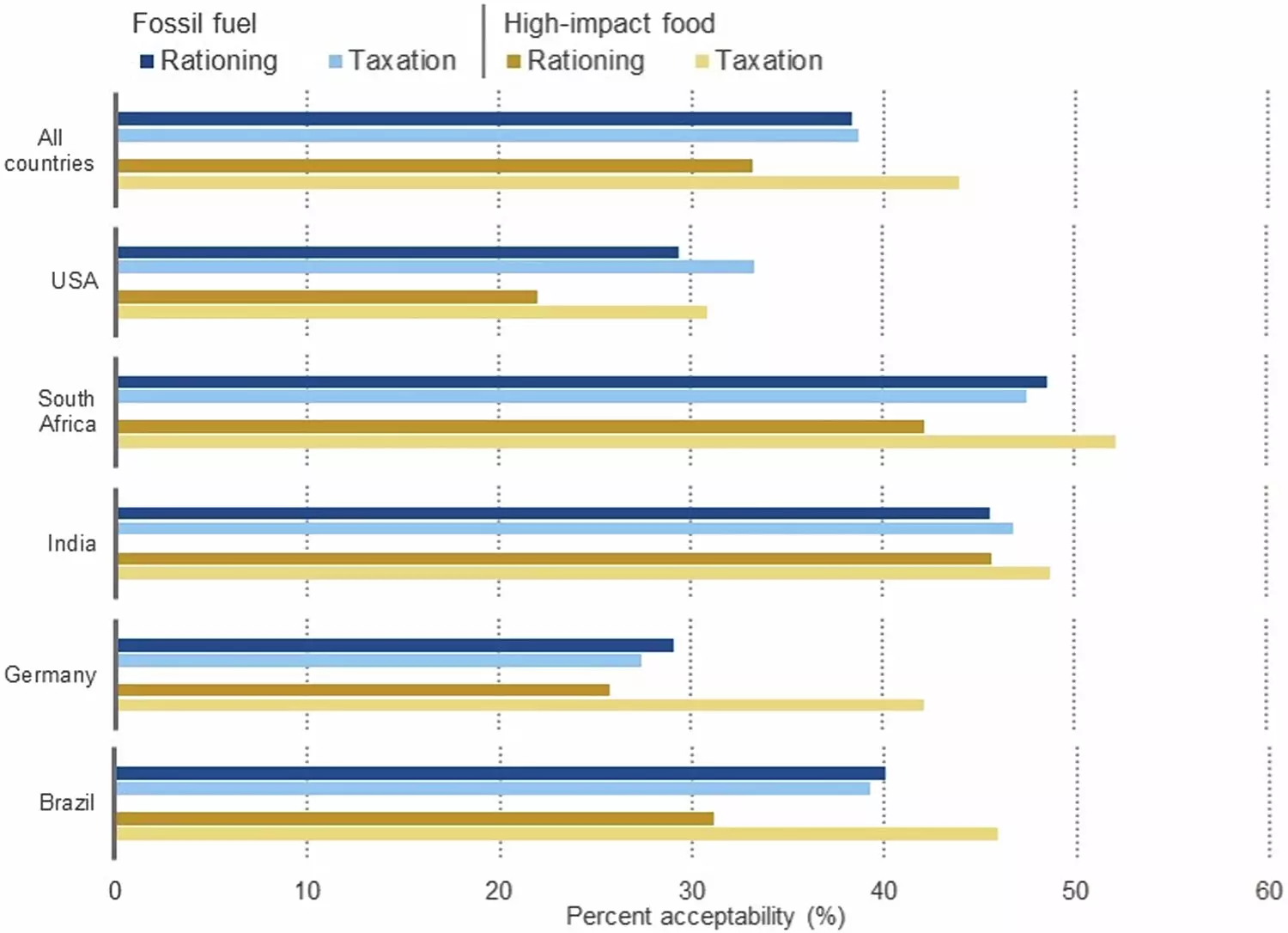

In the face of accelerating climate change, innovative strategies are critical for curbing consumption of high-impact resources, such as meat and fossil fuels. A recent study conducted by the Climate Change Leadership Group at Uppsala University reveals that nearly 40% of the population supports rationing these goods as a method to lessen their environmental footprint. This article delves deeper into the implications of these findings, examining public perceptions, the advantages of rationing, and the need for new policy frameworks that align societal values with environmental urgency.
The survey, which involved participants from Brazil, India, Germany, South Africa, and the United States, serves as a crucial barometer for gauging public acceptance of potentially disruptive climate policies. Findings indicate that the acceptability of rationing food and fuel is comparable to that of taxation on the same commodities—38% of respondents favor fuel rationing, while 39% back fuel taxes. This alarming statistic showcases a societal openness towards frameworks that challenge conventional consumer behaviors, driven perhaps by a shared recognition of the drastic nature of climate change.
One of the principal reasons cited for the acceptance of rationing is its perceived fairness, particularly if such policies are income-agnostic. Oskar Lindgren, the lead researcher, emphasizes this aspect, suggesting that the fairness narrative could help foster wider acceptance of restrictive measures. Policies that are regarded as equitable tend to garner more public support—a critical consideration for devising effective strategies to mitigate climate impacts.
Interestingly, the global response is not uniform. The study indicates that acceptance levels vary by country. Rationing measures appear more palatable in India and South Africa compared to nations like Germany and the United States, where opposition to meat rationing is particularly pronounced. Understanding the sociocultural fabric of different regions is vital for crafting policies that respect local sentiments while achieving global climate objectives.
One of the study’s surprising findings is the relatively modest gap in acceptability between rationing and taxation as climate action strategies. It is striking to note that opposition to fossil fuel taxes is markedly higher in Germany compared to fossil fuel rationing. This counterintuitive trend suggests a complex calculus at play among consumers, where direct consumption limits may be met with an open mind albeit with a degree of discomfort.
As the conversation around climate mitigation evolves, it is crucial to reassess our approach toward taxing or rationing high-emission goods. Research has traditionally centered on economic instruments like carbon taxes, often neglecting alternative strategies. The explorations into rationing provide a fresh lens through which to develop robust adaptation frameworks that resonate with the public.
Another critical insight gleaned from this research is the demographic variations in support for rationing. Younger, more educated populations tend to exhibit a greater willingness to engage in discussions surrounding rationing, recognizing the need for transformative environmental practices. Crucially, individuals concerned about climate change are more likely to advocate for rationing policies, signaling a need for targeted communication strategies that emphasize the collective good.
Furthermore, the study raises pressing questions about the feasibility and design of rationing frameworks. As water rationing initiatives illustrate—ongoing in various parts of the world—the willingness to adapt consumption habits for collective benefits is a promising indicator. Ensuring that such strategies are buttressed by comprehensive public engagement will be fundamental to their success.
Recognizing the potential of rationing as a viable policy instrument in climate mitigation necessitates ongoing research. Understanding public attitudes not only helps clarify acceptable forms of intervention but also informs how these policies can be designed to maximize acceptance and fairness. As society grapples with the urgent consequences of climate change, exploring the dynamics of consumption reduction through rationing will be vital for translating scientific consensus into lived realities.
Rogue waves have long been a subject of fascination and terror in maritime lore. These…
As the world grapples with public health challenges, especially those posed by infectious diseases, the…
The Sombrero Galaxy, also known as Messier 104, embodies a breathtaking blend of spirals and…
In recent advances in quantum electronics, a groundbreaking discovery leveraging the concept of kink states…
In the intricate tapestry of nature, ice often exists in a delicate balance with liquid…
In an astonishing event that captured global attention, a rogue object from beyond our Solar…
This website uses cookies.